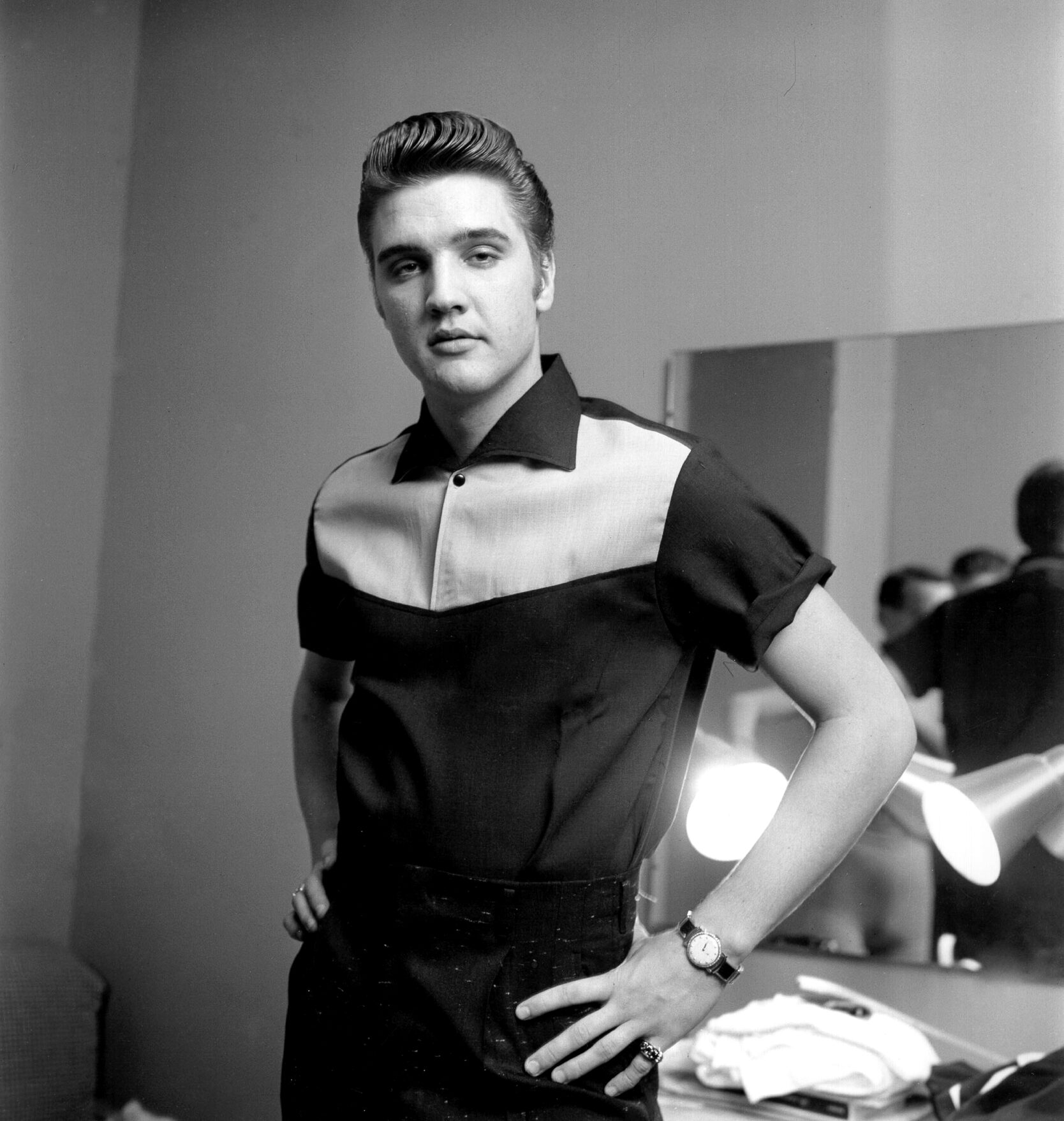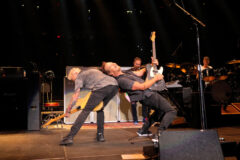74 Sid Vicious
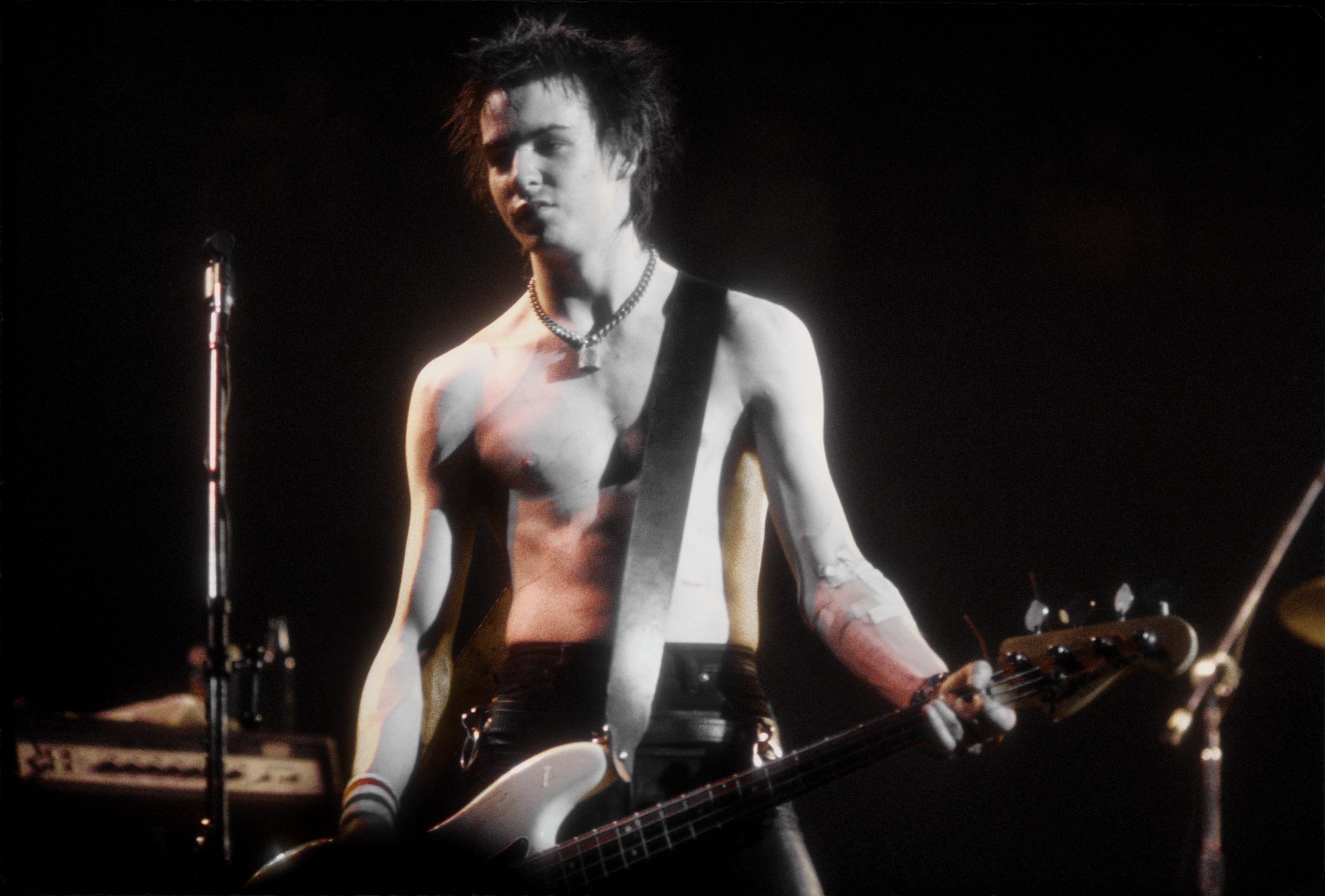
Despite apparently barely being able to even play bass (and allegedly murdering his girlfriend), Sid Vicious effectively defined the visuals of punk rock, helped launch an entire movement he’d never live to see, and may single-handedly be responsible for more of Hot Topic’s business than anyone else. His entire short life was arguably the most punk rock existence in history. JC
73 Buddy Holly
There was much more to Buddy Holly (Charles Holley, actually) than his black-rimmed glasses. Considered one of the pioneers of rock and roll, Holly’s trademark sound influenced such bands as The Beatles, Rolling Stones, and solo artist Elvis Costello. Holly topped the charts and was most known for the song “Peggy Sue,” inspired by someone actually named Peggy Sue Gerron, who was dating Holly’s bandmate in The Crickets, Jerry Allison. After purchasing a Fender Stratocaster electric guitar, Holly changed the way music across all genres — rhythm & blues, rockabilly, country & western — would be performed. Sadly, Holly’s career ended too soon when he died in a plane crash, along with Richie Valens and the Big Popper, February 3, 1959, considered “the day the music died.” Holly’s influence would live on forever. JS
72 Ozzy Osbourne
As the voice, face, and name of the early days of both heavy metal and reality television, Ozzy is the only person who can call himself “the Prince of fuckin’ Darkness” in both of those industries — whether he’s protesting against bubbles or biting the head off of a bat. Hell, he even got fired from one of the biggest bands in the world and went on to be an even bigger star. JC
71 Jane Wiedlin

There’s a reason we campaigned hard for the Go-Go’s to get inducted into the Rock and Roll Hall of Fame. Not because they needed it to prove their relevance as one of the most revolutionary (all-girls) bands of all time, but because we, the fans, wanted that validation. And the reason we chose Jane for this list, is because whether she’s admitting punk rock saved her life, penning “Our Lips Are Sealed”, boldly breaking up the band she started (and then reuniting with again and again), we love her style and we love her spirit. LL
70 Don Henley
I guess “The Boys of Summer” is a good song, but yeah, there’s no denying that the second half of the ‘70s were widely influenced and dominated by those sweet Canyon sounds that emanated from the Eagles, in particular, Don Henley’s songwriting. That’s not even to mention his consistently stellar solo career, which was (ducks) better than what the Eagles did. I know there’s one (fictional) person who can agree with me on that. DK
69 Roger Daltrey
The lead singer of The Who, who had a fraught and contentious relationship with the group’s founder and guiding light, Pete Townshend, which sometimes erupted into fistfights, which went better for Roger than they did Pete, was for a while the golden voice of rock ‘n roll. Late ’60s, early ’70s rock sailed on his primal howl, from his testifying about “Talkin’ ‘bout my g-g-g-generr-ray-shunnn” to tipping his hat “to the new constitution” and getting down on his knees to pray “We don’t get fooooled agaaaa-ain”. He was the deaf, dumb and blind boy and there really was no better live band than The Who ever, and the diminutive, blonde tousled, man-child showman whirling the chord of his microphone was the center of that. BGJ
68 Iggy Pop
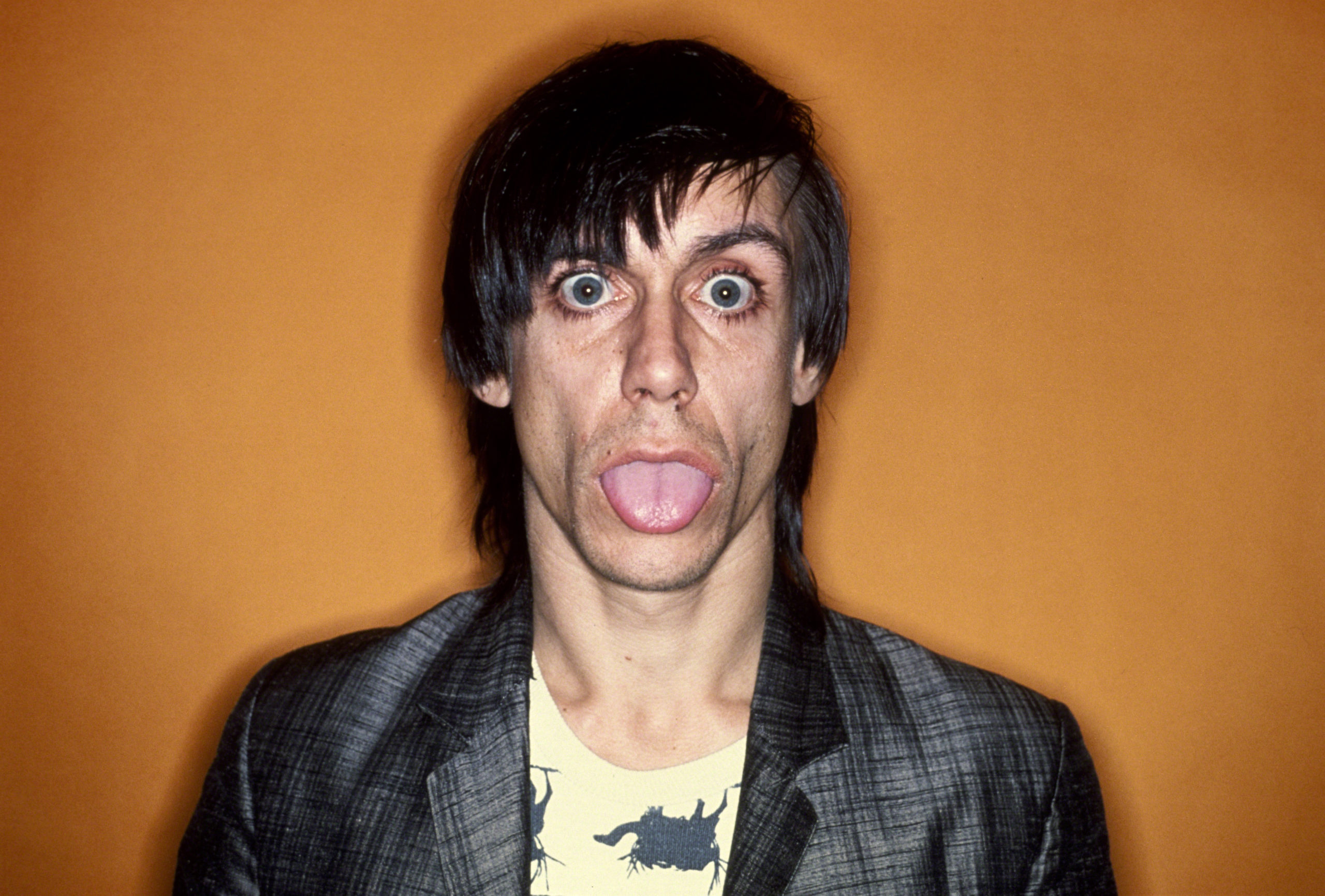
Seriously, what were the odds back in the day that Iggy Pop would outlive people like David Bowie, Lou Reed, and all of the relevant Ramones? The Godfather of punk rock is living proof that genetics are ultimately always more important than taking care of your body — he may also the reason punk rock ever even existed in the first place. JC
67 Keith Moon
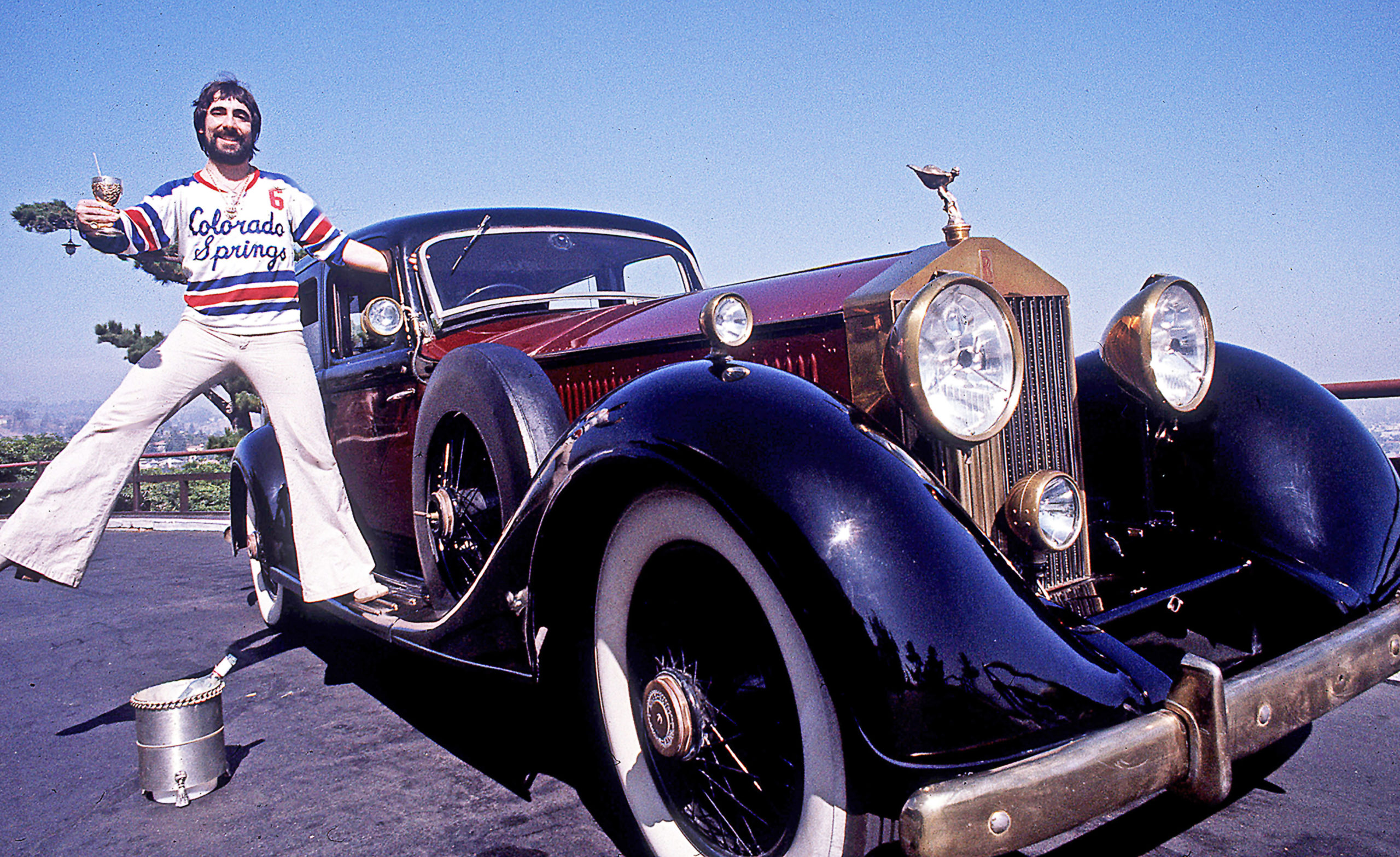
Keith was on his own spiritual plane as a drummer and contributed more to The Who’s signature sound than perhaps any other drummer to their band with the exception of Bonham with Led Zeppelin. And in a way Keith even more so, because there was a freneticness more than an accomplished musicianship to him, like he was possessed, and neither he nor his bandmates knew by what. He drove a Rolls Royce into a swimming pool. A Rolls Royce. BGJ
66 Ray Davies
Ray Davies is the rare songwriter who can operate in basically any style — as singer and bandleader of the Kinks, he seamlessly bounced from power chords to baroque pop arrangements, from fluffy pop tunes to heavy concept albums. Along the way, he crafted some of popular music’s most unimpeachable tunes: “Lola,” “You Really Got Me,” “Waterloo Sunset,” “Picture Book” and “This Time Tomorrow,” to merely scratch the surface. Ryan Reed
65 Trent Reznor
Before he was an award-winning composer for Pixar films, Trent Reznor provided the soundtrack for pretty much every dude who owned a snake in the ‘90s. Nine Inch Nails brought the dirty, industrial sound to the forefront of rock music in ways no one had before (or likely since), and now he’s gone from mud and Woodstock to nearly an EGOT. JC
64 Eric Burdon
Eric once told me a great story, about a party in his home during the late ’60s. “It had gotten really late and I wanted people to go, but no one was leaving. Jimi Hendrix was fucking Jim Morrison in the middle of the floor. So I got my gun and shot the chandelier and it came crashing to the ground and everyone left.” They just don’t make rock stars like that any more!
Burdon, from Newcastle in England, had as powerful a blues voice as any white boy. He belongs in the firmament for being lead singer and spirit-force of the Animals alone, and especially for his delicious, tragic version of “House of the Rising Sun,” and ’60s radio anthem “We Gotta Get Outta This Place”. He formed Eric Burdon and War (later just War) in 1969, a multi-racial rock/funk band, staying with them until 1971, recording classic and trippy tunes “Spill the Wine,” “The World Is a Ghetto,” “Why Can’t We Be Friends,” and “Cisco Kid.” Jimi Hendrix played with Eric and War at Ronnie Scott’s jazz club in London the night before he died. BGJ
63 Gwen Stefani
Beyond being a legendary singer, songwriter, and fashion icon, Gwen Stefani is also the reason that so many women cringe when looking at their hairstyles from 20-30 years ago. She also helped to bring ‘90s ska into the mainstream with No Doubt before wisely launching into pop stardom and reality TV show judging — that’s a little thing called foresight. JC
62 Leslie West
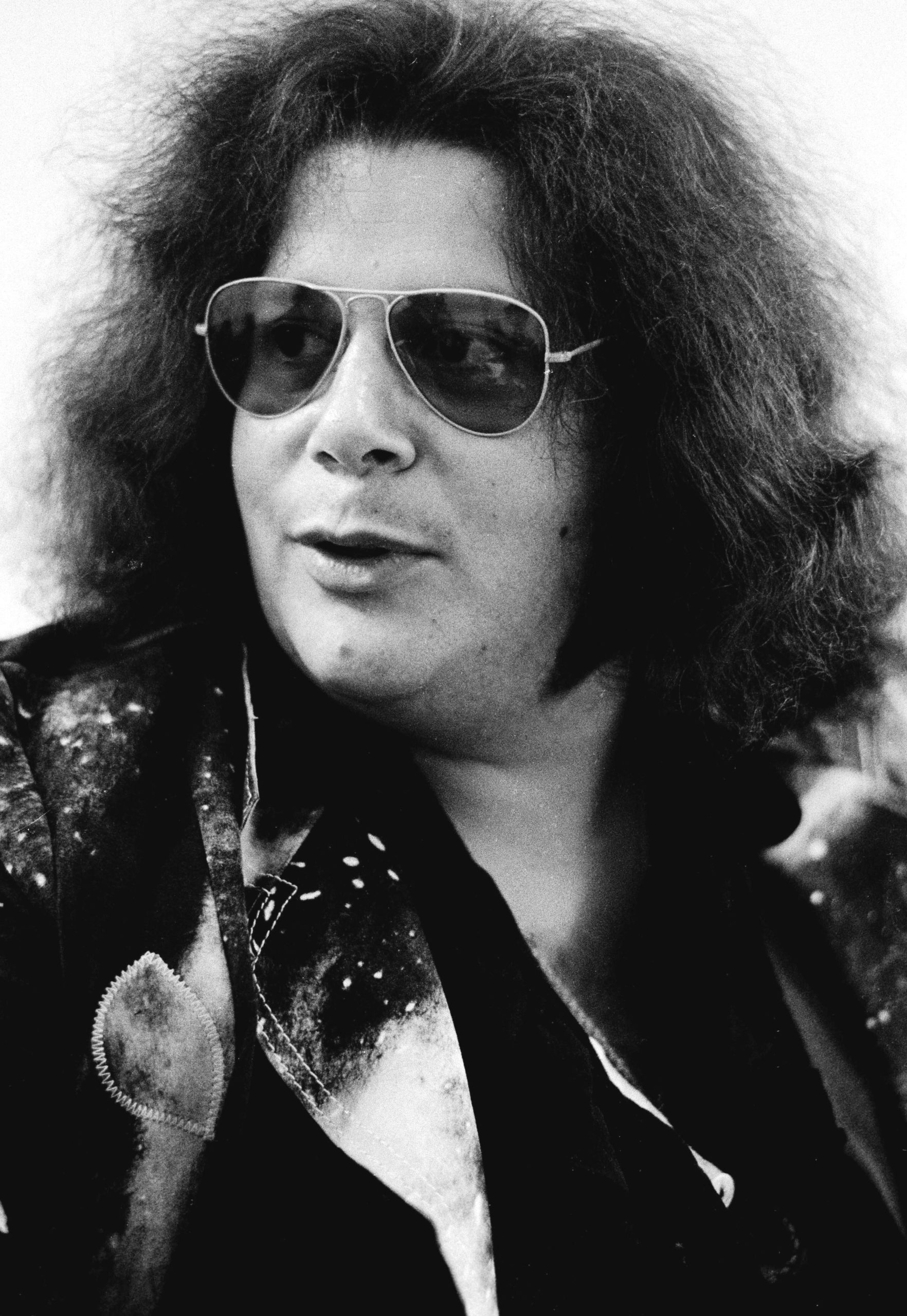
Listen to the monster riffs “Mississippi Queen,” just do it. (Pauses for a minute) OK, now that you’ve done that, tell me how this tenacious guitar player didn’t influence hard rock and even metal. I dare you. Yeah, that what’s I thought. DK
61 Aretha Franklin
The Queen of Soul will never be usurped from her musical matriarchy. The mezzo-soprano singer and pianist’s instant classics like “(Never Loved A Man) Like You” and “Respect” set a new standard for soul and sent her straight to the Rock and Roll Hall of Fame as its first female singer inductee while inspiring a whole fleet of influential chanteuses along the way. Without her, we’d have no Whitney Houston or Lauryn Hill, and we’d certainly have no soul. LB
60 Duane Allman
The man who singlehandedly put Macon, Georgia, on the map for all of the right reasons, Duane Allman‘s guitar kickstarted what became Southern rock. Forming the Allman Brothers Band with sibling Gregg, the outfit was powered by Duane’s distinct blues-driven style and incredible improvisational skills, which also in a way, helped pioneer jam bands (don’t believe me? Listen to the 1971 Fillmore East show). In fact, if not for Allman, one of the most iconic solos in rock history (on “Layla”) may never have existed. Tragically, Allman’s life was cut short at only 24 due to a motorcycle accident, not only curtailing an already magnificent career, but cast a dark shadow over the Allmans that would haunt them for the rest of their 40+ year existence. DK
59 Thom Yorke
Alternative music’s eternal paranoid android, Thom Yorke has guided Radiohead through self-deprecating college-rock, triple-guitar art-rock, mindfuck electronica and most spaces between. He’s a master abstractionist, channeling modern angst into profound catharsis. And decades after “Creep” became a standard, his falsetto is still one of the most bewitching instruments on Earth. RR
58 Chuck D
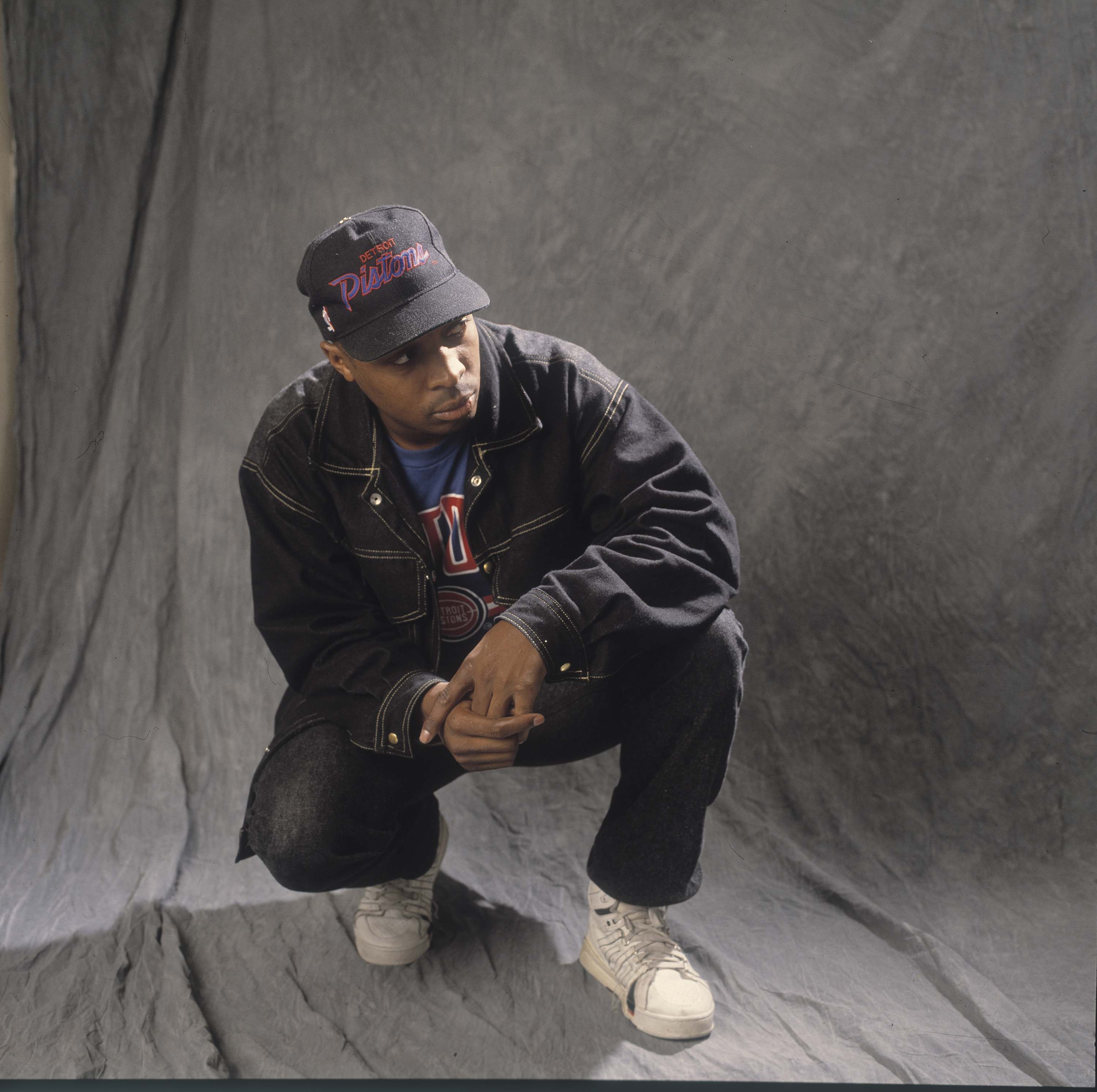
Paul Natkin/Getty Images
I was in Vezelay, France in 1991, on vacation with my girlfriend, an MTV VJ — so, two music professionals but at that moment wide-eyed tourists — and as we walked down a narrow, ancient, cobbled street, we heard Public Enemy’s “Fight The Power” blaring from a window above us. I looked up and there was a white kid with a baseball cap on backwards, glaring down contemptuously at the stream of tourists beneath him, and I said to Kristiane: “That’s why rock ‘n roll will never die, because in every town in the world, no matter how beautiful it is, there’s a kid dying to get out.”
There were many pivotal moments and players in the fast moving evolution of rap and you could point to a few as particularly instrumental in making it mainstream. But Public Enemy slammed the barn door shut on rap’s outlier status and they did it without a scintilla of compromise. For a while, there was no more important, or popular, group on the planet. Chuck D was an angry, articulate Black man, and a force for change. He stood for, and shaped, a revolution, and everyone listened. And it was great music, not at all bitter medicine. BGJ
57 Tom Petty
Rock’s true mad hatter, has anyone written better songs with a simple formula (“Don’t Come Around Here No More” withstanding)? Petty ushered in a new era of anthemic rock songs that comprised kickass instrumentation, relatable lyrics that there were just good. Oh, and remember Hard Promises, the album where took on his record label over price gauging and won to save his fans a dollar? Now THAT’S a rock star. DK
56 Slash
On top of being the slithery heart and soul of Guns N’ Roses’ sound, Slash made the top hat cool again, snatching it back from boffo magicians. After he departed the band under acrimonious circumstances in 1996, Slash was literally everywhere (and Guns N’ Roses was never the same without him) before finding his way home again in 2016 for one of the profitable reunions in rock history. Don’t believe us about his prolificness? Maybe you’ll believe these guys. DK
55 Little Richard
Little Richard was iconic and revolutionary. And appropriately inappropriately outrageous. From his instantly recognizable vocal style of jubilant squalls to his boisterous swagger that defined the coming decades’ hedonistic abandon, he also innovated a new form of soul and funk pretty much singlehandedly. Like all great artists, he was also a thief who stole riffs from people like Ike Turner (and admitted it, to his credit). He’s one of the founding fathers of rock ‘n roll. LB
54 Carlos Santana
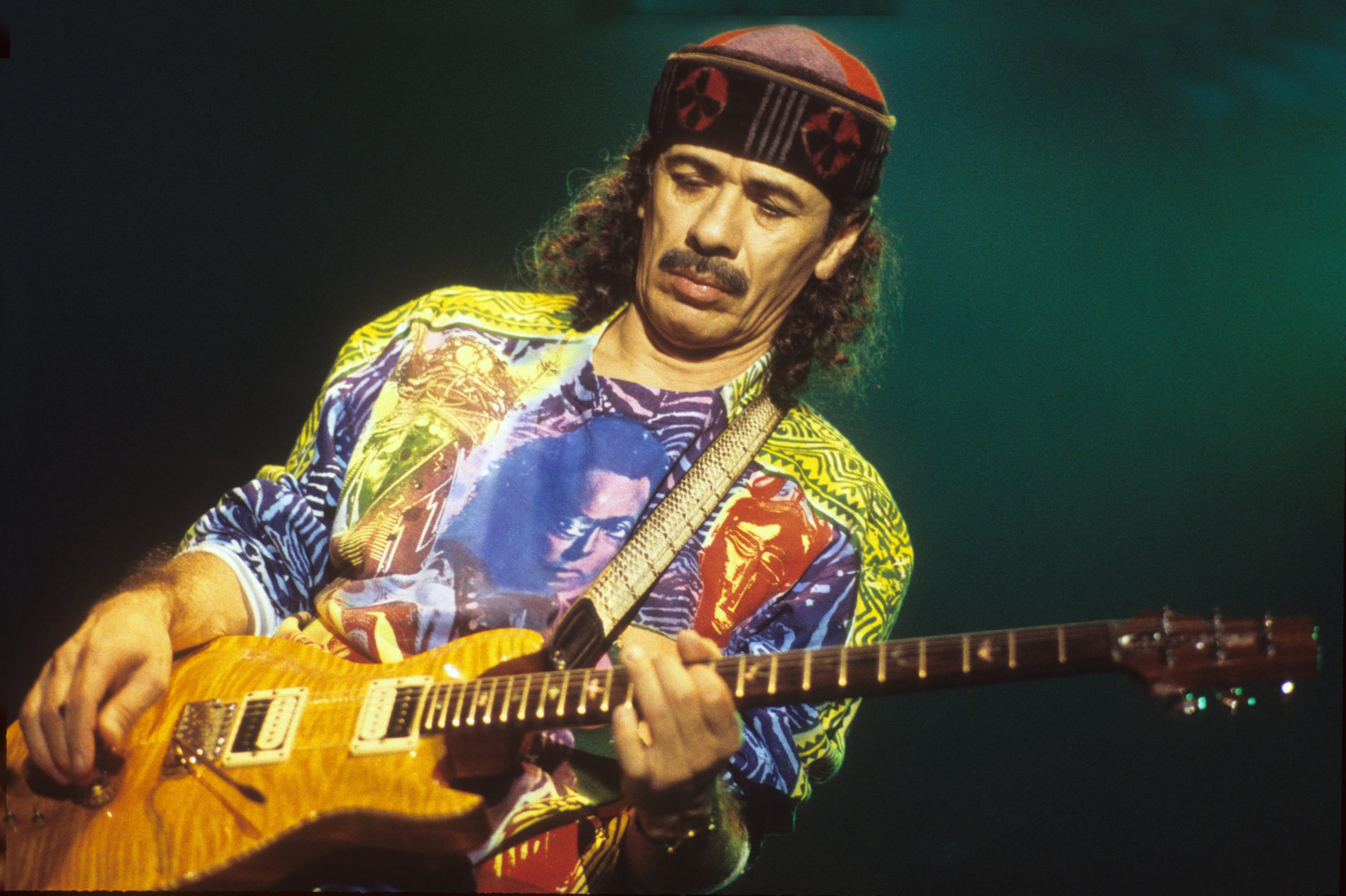
Abraxas felt like the perfect end of the ’60s album, and maybe it was, part of that illusion having to do with Santana’s revelatory appearance at Woodstock, but it was actually released in 1970. It was stunningly fresh and different. Hits from it, the hypnotic “Black Magic Woman” and jazzy “Oye Como Va,” both covers, made Santana the first Hispanic rock superstar. No one sounded like him on guitar, or his band in total — they were lusciously tight and Latin cheery and made enchanting music. This was the time when rock was maturing (on the one hand) and deliciously experimental on the other, the genuinely new sounds lighting our world like fireworks. In many ways the early ’70s was music’s real golden era, because of that. BGJ
53 Stevie Ray Vaughan
The Texas ax-slinger is one of the great what-ifs in guitar hero history. He died far too soon at the age of 35 in a plane crash but his impact even before that is an honor roll of accomplishments. Few, if any can make playing such complicated blues numbers so accessible and is one of the greatest raw talents who influenced an entire generation of guitarists — often replicated, never duplicated. DK
52 David Thomas
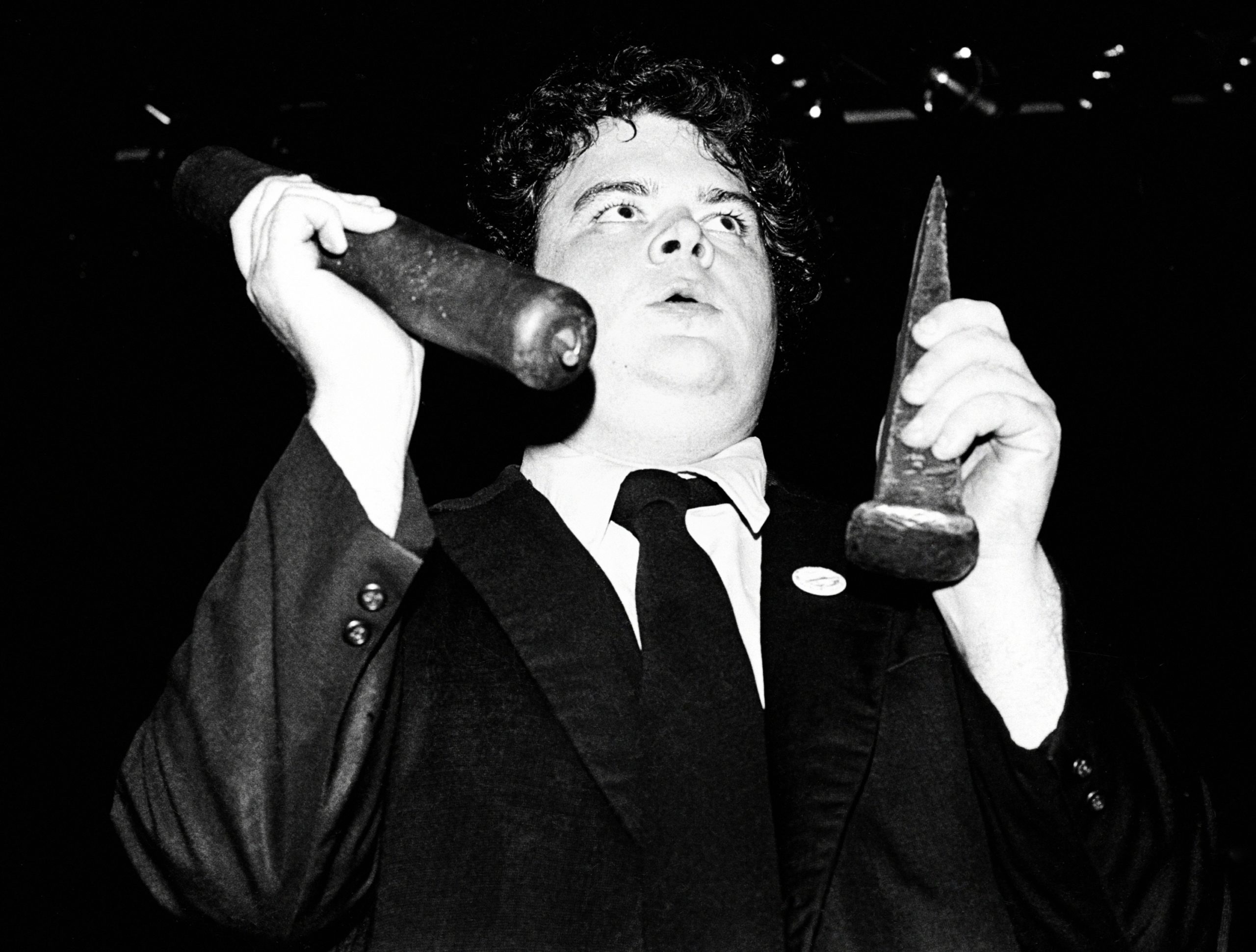
David Thomas is the founder and lead singer (and only constant member) of Cleveland’s eccentric and experimental — and brilliant — rock group Pere Ubu. The group takes its name from an amoral, despotic character in surrealist Alfred Jarry’s 1896 play Ubu Roi (meaning “King Ubu”). Which esotericism makes sense when your declared intention is to create “avant garage” music, which they most certainly did. Pere Ubu’s albums weren’t for everybody, which is a shame, because they’re among the most interesting music made in the last 45 years. It incorporates rock, a tinge of still-in-the-womb punk, and the rather pretentious sounding “musique concrete,” which is mostly recorded industrial sounds, manipulated and strained through special audio effects. Mind you, he was doing this in the late ‘70s, long before sampling and computer effects were commonplace. A friend once drove me, late at night, around the perimeter of Cleveland’s gigantic Oil Refineries, their forest of steel towers and tanks lit by bright white lights like a multitude of stars, clouds of grey fumes blooming across the dark sky, while playing Pere Ubu on her car’s cassette player. It was the greatest, one-off, holographic immersive music video ever. BGJ
51 Jon Bon Jovi
The mulleted man and his namesake band crushed ballad after ballad in the ‘80s and part of the ‘90s with songs that we all memorized the lyrics to, from “Livin’ on a Prayer,” to “You Give Love a Bad Name.” The latter was produced in Bon Jovi’s childhood home in Sayreville, New Jersey, where he was living up until the band’s third album — Slippery When Wet — when Jon was finally able to afford to rent an apartment. Rent’s not a problem nowadays, after selling more than 130 million albums. What else can you say about Jon Bon Jovi? Every woman wanted him, dead or alive. And you can’t deny shouting halfway there while being all the way drunk at happy hour. JS
50 John Lennon
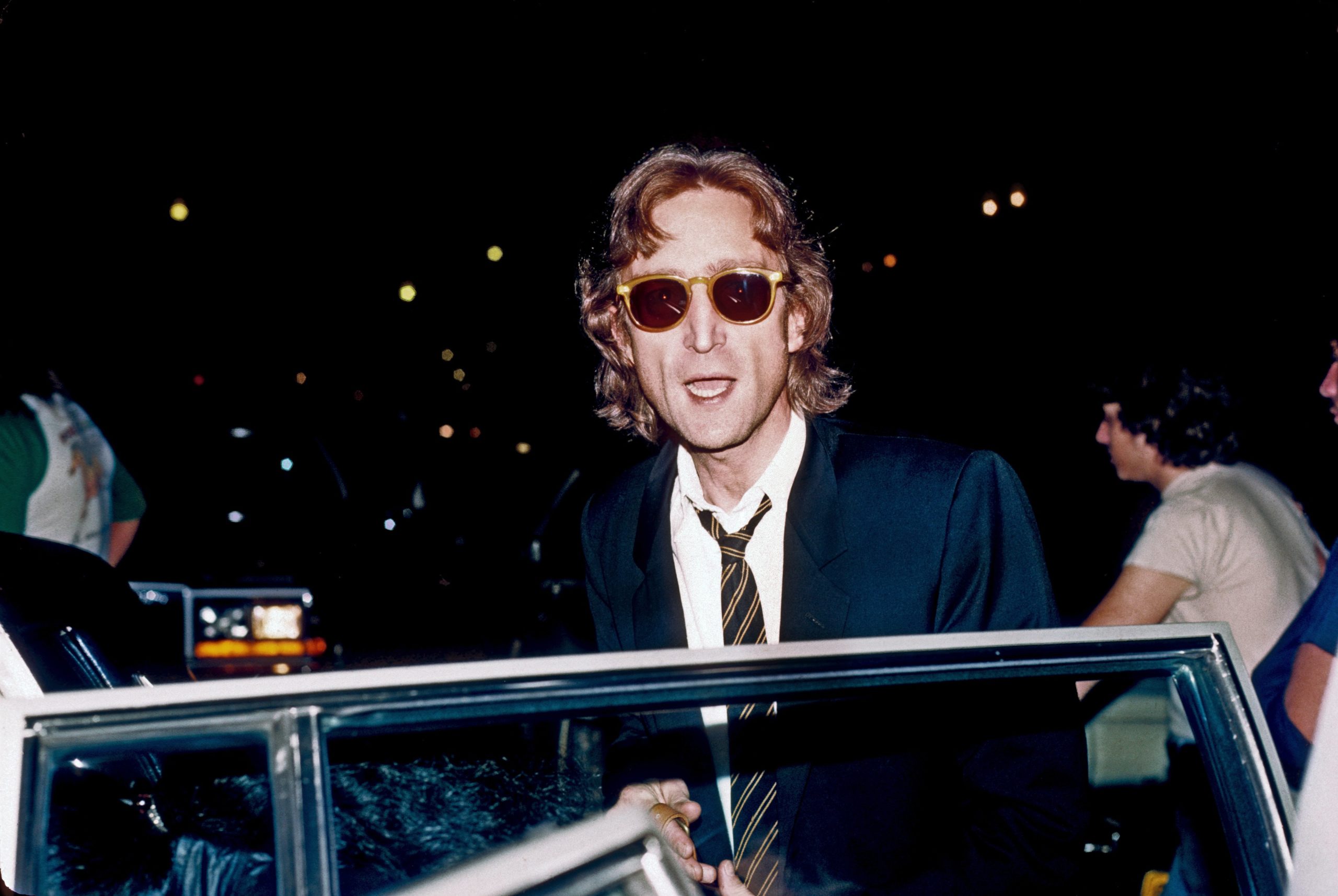
Lennon had the sweetish pretension that he was a rock ‘n roller — I imagine he imagined himself as a ’50s kind of rock star, like Buddy Holly, or maybe Jerry Lee Lewis, unsophisticated, unfinished. But he was the Great Intellectual, and the ultimate, encyclopedia entry-picture hippie, remembered indelibly for his bed-in with Yoko Ono, for Yoko Ono full stop, actually, The Beatles, and being in India with The Beatles during their most-hair and trippy phase. But of course he’s a musical giant, with his own private suite in rock’s Pantheon, although he’s more Dylan than Bruce. Yes, he could belt out a tune, but he’s extraordinary for the poetry in his songs. BGJ
Ready for the next part? Use the navigation at the end of the text to see another section of this ranking

